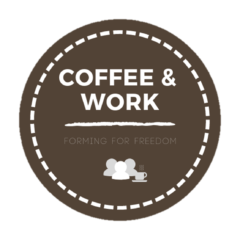1889, Paris: during a meeting of the Second International (an organization formed by socialist and labor parties), the 1st of May was instituted as a moment of remembrance of the protests carried out in search of better working conditions.

Shortly before, in the USA, a major national strike, which culminated in violent clashes, was aimed at reducing the intense 15-hour working day. From then, this date is celebrated in several places of the world.
But, beyond from the holiday, the day of rest, of home organizing even leisure, have we stopped to reflect on the connection between the struggles that established this day and our life nowadays?
More directly and personally, can we honestly answer this question: How many hours do we currently work? Certainly our working day is not far from that lived by workers of that time. But what is the difference? What is the point of remembering a day that aimed at better working conditions, and today, we freely choose to work 12, 15 hours a day?
Certainly one of the answers will be: “Ah, but the question is precisely this; I can chose to work. ” But it can also mention: “I have bills to pay, if I do not work, I have no money.” There are a myriad of possible answers, all of which are legitimate and valid. However, the invitation is: move to deeper layers of your will toward work. Will the work remain at this layer of production? I believe that one of the greatest lessons that comes from those nineteenth-century workers may have gone unnoticed by many of us:
what work really means?
Do not look to the context can be a dangerous strategy, but for a moment,if we stop to think and evaluate: why did we chose to be in place where we are? Why are we experiencing these moments? Answering these questions, for sure, we will advance to deeper layers of the work in our being.
We have to go beyond the question of whether or not to like work. Obviously, the affection invested in our work relationship is fundamental, but it is not the only one that matters at the end.
Working is part of life and is beyond its remuneration. The person who clock in and clock out of its working time, is the same person who is looking forward to Friday. The individual who needs to say “no” to some customer demand is the same individual that says “no” to an injustice on the street or to its child at home.
In short, we gather spaces and times. Working is a human activity that requires choices and defines who we are, not just in the space determined for productive and paid activity.
Work defines who we are beyond the time defined as “useful.” Work implies who we are in our family, school … anywhere and anytime. Work is what we do every minute, which is permeated with values and culminates with a choice. Work is what is forming and transforming our character and our personality. Work is not reduced to the financial universe, although our choices lead us to define it in this way.
On this worker’s day I leave an invitation for you to reflect (at least for five minutes): how have you lived the work?
